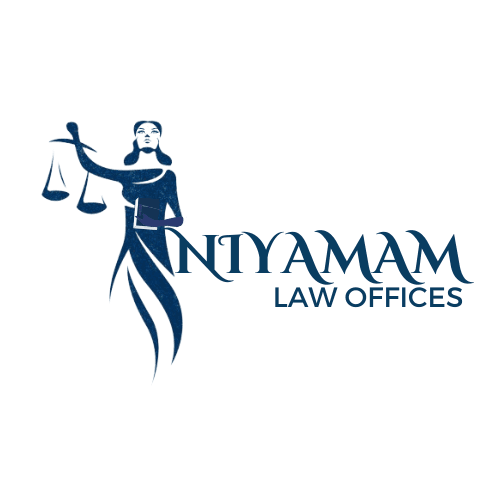DRT Lawyer in Delhi | Expert Debt Recovery Tribunal Advocates
Debt disputes, loan defaults, and recovery proceedings are increasingly common in the financial world. Banks, NBFCs, and financial institutions face frequent challenges when borrowers fail to honor their commitments. On the other hand, borrowers often need legal protection from unlawful or aggressive recovery actions.
This is where a DRT lawyer in Delhi becomes essential. The Debt Recovery Tribunal (DRT) is a specialized forum created to provide fast and efficient resolutions to debt-related disputes. With Delhi being one of the busiest financial and legal centers in India, having the right DRT lawyer in Delhi ensures you receive expert guidance, timely representation, and maximum protection of your interests
What is a Debt Recovery Tribunal (DRT)?
The Debt Recovery Tribunal (DRT) was established under the Recovery of Debts and Bankruptcy Act, 1993 to provide a fast-track mechanism for recovery of debts due to banks and financial institutions.
Key Points About DRT:
- Deals with cases involving debts above ₹20 lakhs.
- Empowers banks, NBFCs, and financial institutions to recover dues.
- Proceedings are much faster than traditional civil courts.
Appeals are heard before the Debt Recovery Appellate Tribunal (DRAT).
A qualified DRT lawyer in Delhi understands tribunal procedures, documentation requirements, and legal strategies to strengthen your case.
Why Delhi is a Hub for DRT Cases
Delhi, being the capital and a commercial hub, has one of the busiest Debt Recovery Tribunals in India. Many nationalized banks, private banks, NBFCs, and large corporates headquartered in Delhi frequently approach the DRT.
Hiring a local DRT lawyer in Delhi gives you the advantage of:
- Familiarity with tribunal judges and procedures.
- Quick access to hearings and filings.
- Immediate response in urgent matters like stay applications.
Strong network with local officials for effective execution of orders.
Testimonials
Trustindex verifies that the original source of the review is Google. Adv ankit helped me for my ongoing divorce case. He knows how to handle these kind emotional turmoil of their clients. He is one of the best divorce lawyer in Delhi so far. I highly recommend him for divorce cases.Posted onTrustindex verifies that the original source of the review is Google. The divorce lawyer in Delhi at Niyamam Law Offices made a very tough time easier for me. Advocate Ankit Kumar was empathetic and patient, and the firm handled everything smoothly. I am very grateful for their support during my case.Posted onTrustindex verifies that the original source of the review is Google. I had a cheque bounce case and was very stressed, but Advocate Ankit Kumar and his team at Niyamam Law Offices handled it with great expertise. He is truly the best cheque bounce lawyer in Delhi. The firm is professional, approachable, and always ready to explain things in simple terms. My issue was resolved much faster than I expected.Posted onTrustindex verifies that the original source of the review is Google. Thanks to Ankit Kumar sir. We won the case in very short time period by his excellent knowledge and experience. Advocate Ankit Kumar is the best divorce lawyer in delhiPosted onTrustindex verifies that the original source of the review is Google. One of my friend recommended Advocate Ankit to hire him as my divorce lawyer and I am truly grateful for that decision. Divorce is never easy, but Advocate Ankit made the entire process far less stressful. He patiently understood my situation, explained my legal options clearly, and guided me through every step of the proceedings. What sets him apart is his blend of professionalism and empathy. He was always approachable, answered my queries without delay, and gave me complete confidence in his strategy. My case involved complex issues of property division and alimony, yet he handled it with precision and secured a fair outcome for me. I would strongly recommend Advocate Ankit to anyone in need of a reliable, compassionate, and highly skilled divorce lawyer in Delhi. His expertise and commitment make him one of the finest family lawyers I have ever met.Posted onTrustindex verifies that the original source of the review is Google. I consulted Advocate Ankit from Niyamam Law Offices during a very difficult phase of my life, and I can confidently say he is one of the best divorce lawyers in Delhi. From the very first meeting, he patiently listened to my concerns, explained the legal process in detail, and gave me the confidence to move forward. My case involved not only divorce but also child custody and maintenance, and he handled everything with professionalism and compassion. What impressed me most was his transparent approach—he kept me informed at every stage, never gave false promises, and ensured that my interests were always protected. His expertise in family and matrimonial law, combined with his courtroom skills, helped me achieve a fair and timely resolution. If anyone is looking for a trusted divorce lawyer in Delhi, I would strongly recommend him. Thank you Advocate Ankit for my case.Posted onTrustindex verifies that the original source of the review is Google. Niyamam law handled my legal issue with professionalism and care. Highly Recommend!Posted onTrustindex verifies that the original source of the review is Google. "If you are looking for a property lawyer in Delhi,Niyamam Law offices is the best choice. Advocate Ankit Kumar handled my property dispute with the legal process clearly and ensured my rights were fully protected.I felt very secure with his advicePosted onTrustindex verifies that the original source of the review is Google. I searched online for the top lawyer in Delhi and found Advocate Ankit Kumar of Niyamam Law Offices. From the first meeting itself, I felt confident about my case. He has deep knowledge of law and represents clients with full commitment. The entire firm works very professionally
Role of a DRT Lawyer in Delhi
A DRT lawyer is more than just a representative—he or she is your strategist, guide, and defender in complex financial disputes.
Services Typically Handled by DRT Lawyers:
- Filing Original Applications (OA): Initiating recovery proceedings before the DRT.
- Defending Borrowers: Representing clients against aggressive recovery actions.
- SARFAESI Proceedings: Enforcing security interests and handling asset possession.
- DRAT Appeals: Filing and arguing appeals before the appellate tribunal.
- Settlement Negotiations: Facilitating repayment plans or restructuring loans.
Bankruptcy & Insolvency Matters: Assisting with proceedings under the IBC.
Whether you are a bank, NBFC, corporate entity, or individual, having a DRT lawyer in Delhi ensures smoother and faster resolution of disputes.

Debt Recovery Process Through DRT
The debt recovery process under DRT is structured and requires careful compliance with procedures.
Step-by-Step Process:
- Case Evaluation: Reviewing loan documents, agreements, and defaults.
- Issuing Legal Notice: Sending a formal demand notice to the borrower.
- Filing the Original Application (OA): Preparing and submitting the petition with supporting evidence.
- Hearing & Evidence: Presenting arguments, cross-examinations, and filing replies.
- Interim Reliefs: Seeking stay orders, injunctions, or asset attachment to prevent disposal.
- Final Judgment: Tribunal orders repayment, possession, or enforcement of security.
Execution of Orders: Implementing orders through property attachment or asset auctions.
An experienced DRT lawyer in Delhi ensures procedural accuracy and minimizes delays.
DRT vs Civil Courts: Why Choose DRT?
Traditional civil courts are often burdened with lengthy procedures and backlogs. In contrast, DRTs are designed for speed and efficiency.
- Faster Proceedings: Ideally resolved within 180 days.
- Specialized Judges: Presiding officers with expertise in financial matters.
Focused Jurisdiction: Only debt recovery disputes, ensuring streamlined handling.
This is why hiring a skilled DRT lawyer in Delhi is critical for banks and financial institutions seeking quick recovery.
SARFAESI and DRT: How They Interact
The SARFAESI Act, 2002 empowers banks to enforce security interests without court intervention. However, borrowers can challenge such actions before the DRT.
This means lenders need strong representation to enforce their rights, while borrowers require protection from unlawful actions. A DRT lawyer in Delhi bridges this gap by representing clients on both sides—ensuring enforcement or defense depending on the case.
Why Choose Us?
Local Expertise
Familiar with Delhi’s DRT procedures, judges, and registry.
Quick Access
Immediate response in urgent matters like stay applications.
Specialized Knowledge
Deep understanding of debt laws, SARFAESI, and insolvency codes.
Efficient Execution
Handling property attachments, possession, and auctions effectively.
Frequently Asked Questions
Cases involving recovery of debts exceeding ₹20 lakh, typically filed by banks, NBFCs, and financial institutions.
By law, DRT cases should be resolved within 180 days, but timelines may extend depending on complexity and workload.
No. Only banks and financial institutions can directly approach the DRT. Individuals must use civil courts unless they qualify under insolvency proceedings.
The DRT is the first forum for recovery proceedings, while the Debt Recovery Appellate Tribunal (DRAT) hears appeals against DRT orders.
Because local lawyers understand tribunal procedures, can act quickly in urgent matters, and have experience dealing with similar cases in Delhi’s DRT.
